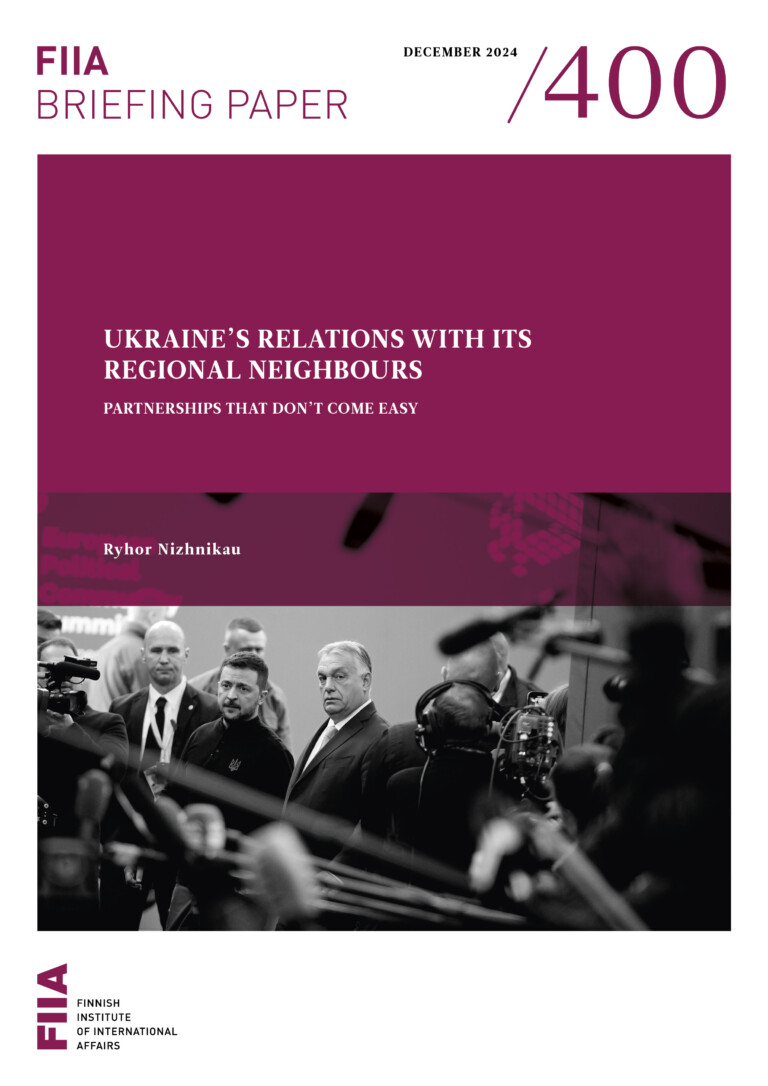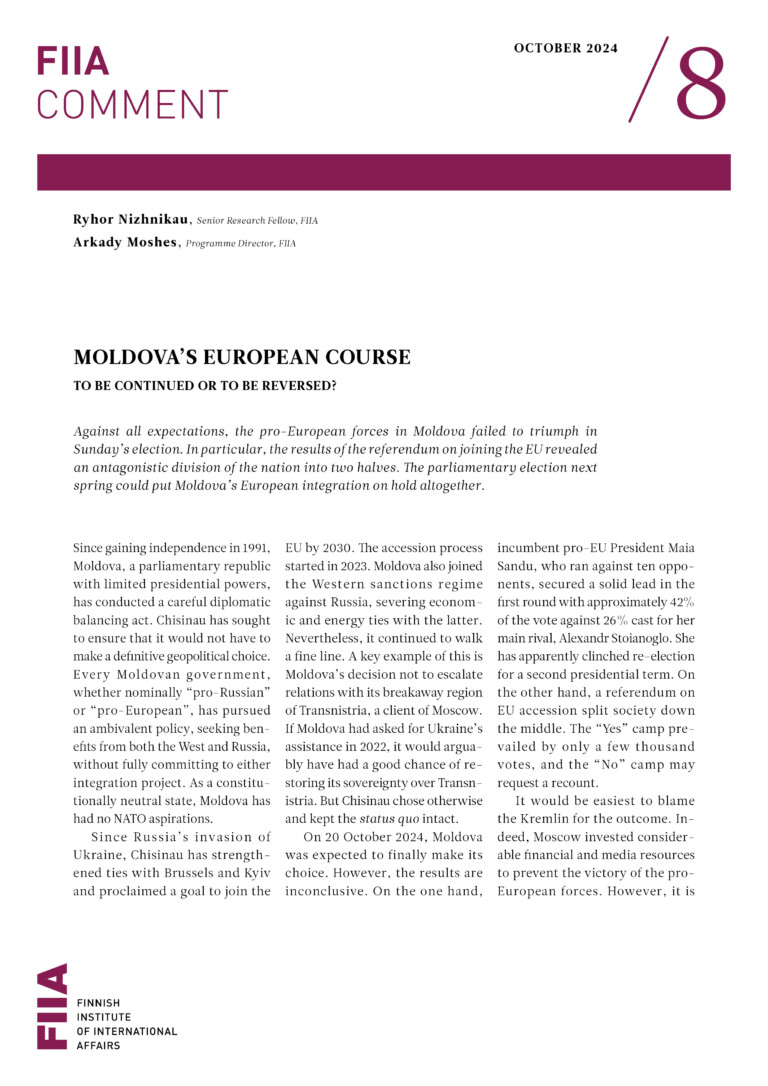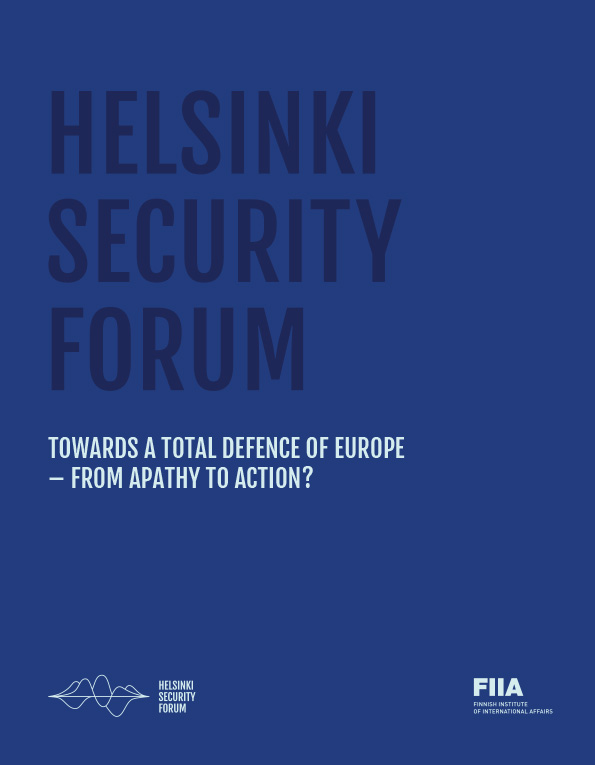Make no mistake: the ceasefire in Donbass, agreed upon in Minsk on September 5, does not herald stability and a sustainable resolution to the crisis in Ukraine.
Moscow’s geopolitical objectives have not been met. The emergence of a breakaway entity, which encompasses only a part of the territory of the Donetsk and Luhansk oblasts, cannot be equated with a split of Ukraine. This is a far cry from a powerful Novorossiya, stretching from Kharkiv to Odessa and bolstering the claim, made at the highest political echelons in Russia, that Ukraine is ‘an artificial state’.
On the contrary, in geopolitical terms, Ukraine’s position has not changed. It remains one of the largest European countries with a population of over 40 million people. And these people will now vote predominantly in support of European, and possibly NATO aspirations as well.
From a more practical point of view, the current ceasefire will not help Russia to build a land corridor to Crimea. The peninsula receives most of its water and energy supplies from or through mainland Ukraine, and until a bridge across the Strait of Kerch is built, it will remain dependent on the goodwill of Kyiv. No less painfully for Russia in the short term, the ceasefire does not imply the resumption of its military-industrial cooperation with Ukraine. Meanwhile, it should not be overlooked that Russia still needs military electronics from Kharkiv, missile components from Dnepropetrovsk, aircraft and helicopter engines from Zaporizhia, turbines for the navy from Mykolaiv, and probably many other products.
Inside Ukraine, there is a colossal gap between the expectations of the self-proclaimed Donetsk and Luhansk People’s Republics, which have said they would pursue the path towards independence, and a law – yet to be adopted by the parliament in Kyiv – ‘On the temporary order of local governance in certain districts of the Donetsk and Luhansk oblasts’ (point 3 of the Minsk protocol) that they were promised.
In turn, a frozen conflict, treating the rebel-controlled territories as Ukraine’s Transnistria, is not acceptable for Kyiv. Most likely, it will not even view the establishment of a loose confederation as an option. It will not give Donbass a de facto veto on its own foreign policy decisions. It will not grant the People’s Republics the legal right to conduct external trade. On the contrary, if prospects for Ukraine’s integration with the West without Donbass were to emerge, Kyiv would probably go as far as to recognize the territories’ independence, so the potential for diplomatic bargaining here is quite limited. Kyiv would be happy to shift the burden of economic support and reconstruction of the breakaway territory onto Moscow, and show no intention of paying for the energy that Donetsk and Luhansk industries would consume.
All this implies that sooner or later one should expect the resumption of hostilities, and attempts to destabilize other parts of Ukraine and to subsequently carve out new pieces of Novorossiya. Sooner rather than later, it should be added, because if the prevailing economic analysis is correct, then with or without Western sanctions, the Russian economy will face increasing problems, and what the Kremlin can afford at the moment, it will not necessarily be able to afford some years from now.
But the classic definition, according to which peace is a time period between wars, can still be proven wrong. A renewed conflict and, who knows, possibly even a large-scale Russian-Ukrainian war can still be avoided if the international context around the conflict changes further and thus affects the calculus of the parties.
In these circumstances, the West should step up its involvement in Ukraine. The inability of the former to help its crucial partner preserve its territorial integrity dealt a major blow to the credibility of Western foreign policy as a whole. Its international reputation now depends on success in Ukraine.
The question of military assistance to Ukraine will have to be addressed in earnest and urgently. It is true to say that the conflict in Donbass does not have a military solution. But it should also be pointed out that in order to make this obvious to everyone, Ukraine needs to build a credible conventional deterrent force. A militarily weak Ukraine will present a lucrative target for external pressure, and the temptation will be strong to give preference to war as an instrument to secure Ukraine’s political concessions. Without a doubt, this is a very delicate matter and Western capitals should weigh and calibrate their decisions. But the resolve to make a difference should be clear. Unfortunately, the NATO Summit decision to grant Ukraine 15 million dollars, which is not even enough to buy one modern military aircraft, creates the opposite impression.
But military assistance is not the key question. Any support will be futile if the quality of governance in Ukraine does not improve considerably. And this is where the role of Western expertise and advice, but also scrutiny and perseverance, may be critical. If Ukraine needs Western solidarity and really wants to implement its declared European choice, it should also accept the requirements and conditionality that will follow. The ratification of Ukraine’s Association Agreement with the EU should be the first step in the right direction, after which the EU should not be timid about using this very important instrument for Ukraine’s transformation.


















